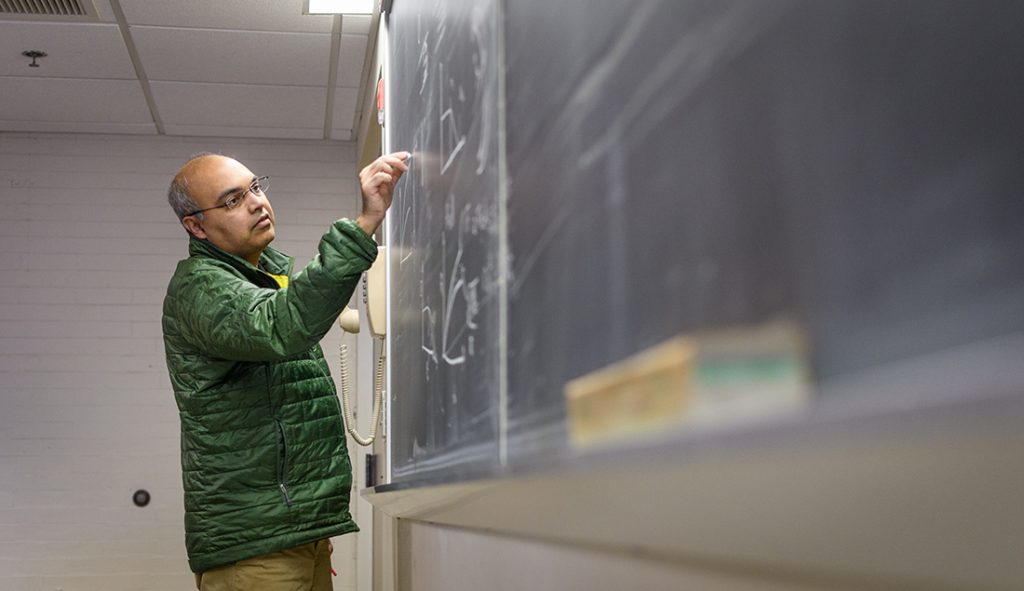Clark physicist receives grant to study COVID-19 transmission

As the world continues to grapple with the COVID-19 pandemic and struggles to return to some sense of normalcy, researchers are focusing on the virus’s prevention and treatment — and how to mitigate its spread. Arshad Kudrolli, professor of physics, is the first member of the Clark faculty to receive funding to study the novel coronavirus.
Kudrolli has received a $200,000 grant for Rapid Response Research from the National Science Foundation Division of Materials Research to support his study, “Predicting Coronavirus Disease (COVID-19) Impact with Multiscale Contact and Transmission Mitigation.” The work will examine transmission rates, mitigation factors like personal protective equipment, and how another pandemic can be avoided.
Because of its rapid spread, COVID-19 mitigation requires multidisciplinary strategies of transmission modeling. Kudrolli’s research addresses these strategies based on individual infection rates due to interaction with respiration clouds and surface contacts. The research will include analysis of existing data, experiments with a synthetic breathing apparatus, and computer simulations.
The study will result in a data-driven transmission model of COVID-19; physical data regarding the rate and dispersion distance of droplets released while breathing, sneezing, coughing, and talking — and how long those droplets remain on surfaces based on temperature, humidity, and airflow; and the impact of confinement and protective equipment on prognosis, recurrence, and cumulative death rates. In addition, interactive web resources will be posted for immediate broad dissemination of data and learning outcomes on COVID-19.
“The research grant will support the development of a scalable individual-based model of coronavirus spread integrating the physics of droplet trajectories in air and on surfaces,” Kudrolli says. “The funds will enable us to fully harness the big data and rapid-prototyping capabilities we have developed at Clark in solving fluid-structure problems and apply them to fighting COVID-19 locally and globally.”
Kudrolli, director of the Complex Matter and Nonlinear Physics Laboratory, focuses his research on a broad range of non-equilibrium phenomena, granular materials, and biological physics. Topics of recent experiments include grain shape and dynamics, scaled-up ciliary flow and synchronization, crumpling, self-assembly, erosion geomorphology, and biolocomotion. Kudrolli joined the Clark faculty in 2008 and served as the Jan and Larry Landry University Professor from 2011 to 2016. He was elected an American Physical Society Fellow in 2010.


